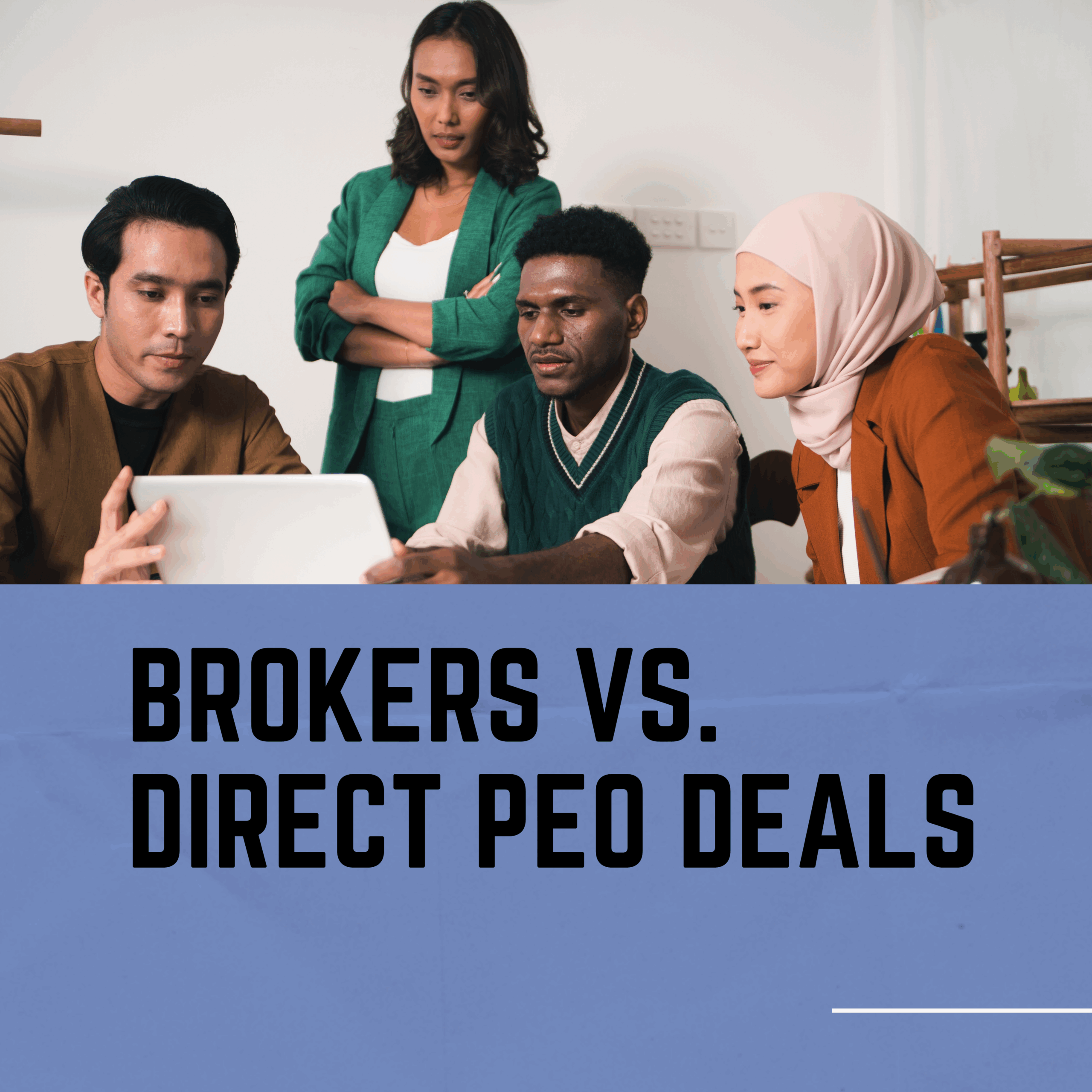Choosing a PEO often prompts a choice between working directly with a PEO sales rep or engaging with a broker. While direct relationships may appear simpler, they frequently carry hidden drawbacks. In contrast, brokers—acting as neutral advisors—offer transparent advice and unbiased advocacy. Here are four key areas where brokers deliver significant and often overlooked advantages.
Alignment of Interests: Client vs. Provider
PEO sales reps are accountable to their company’s targets and profitability goals. Their priority is closing deals—not necessarily ensuring the partnership is optimal for your business. Brokers, however, are fiduciaries for their clients. They place your needs first, offering objective recommendations and avoiding conflicts of interest. This ensures the PEO selected truly aligns with your risk profile, growth goals, and HR priorities.
Transparent Pricing vs. Bundled Upsells
Direct PEO deals often come with bundled services—benefits, HR platforms, compliance support—bundled into opaque pricing packages with upsells and renewal escalations. Sales reps may understate these add-on costs to close the deal. Brokers demand transparency: they break down every line item, compare pricing models across providers, and expose auto-renewal clauses and escalators long before you’re locked in.
Negotiation Leverage and Customized Terms
Working directly limits your leverage; sales reps know they control the offer and rarely adjust standard contracts. Brokers bring negotiating power: they understand market norms and counterbalance PEO terms with better pricing, shortened contract durations, and flexible exit clauses. They also push for customizations tailored to your operational needs—like onboarding timelines or performance SLAs—something that direct reps seldom offer.
Unbiased Advocacy for Issues That Arise
Once a business signs up with a PEO, issues may arise—service-level problems, billing discrepancies, or compliance concerns. In a direct relationship, you’re often left to navigate troubles alone, with limited leverage. Brokers, however, remain engaged as advocates. They intervene on your behalf, escalate issues, and coordinate resolutions. Their ongoing partnership elevates accountability and provides a safety net
Conclusion
At first glance, direct deals may seem quicker and more straightforward. But their convenience often comes with hidden trade-offs: misaligned incentives, opaque pricing, inflexible contracts, and limited recourse. In contrast, working through a broker ensures impartial guidance, financial clarity, contract flexibility, and continuing advocacy.
For businesses seeking a PEO partner—not just a vendor—a broker is not a nice-to-have: they’re essential to ensuring long-term value and protection.
References
- What is a PEO broker? – Thatch Blog
https://thatch.ai/blog/what-is-a-peo-broker
Hidden PEO pricing and renewals – EmphasisHR
https://emphasishr.com/how-much-does-a-peo-really-cost-breaking-down-the-fees/
Industry benchmarks in PEO pricing – Sustainable HR PEO
https://www.sustainablehrpeo.com/2024/04/01/peo-costs-how-much-does-it-cost-to-use-a-peo/
The importance of SLAs in PEO contracts – HR Exchange Network
https://www.hrexchangenetwork.com/hr-software/articles/why-industry-specialization-matters-when-choosing-a-peo
Broker advocacy in ongoing relationships – AspenHR
https://aspenhr.com/peo-broker-benefits/

